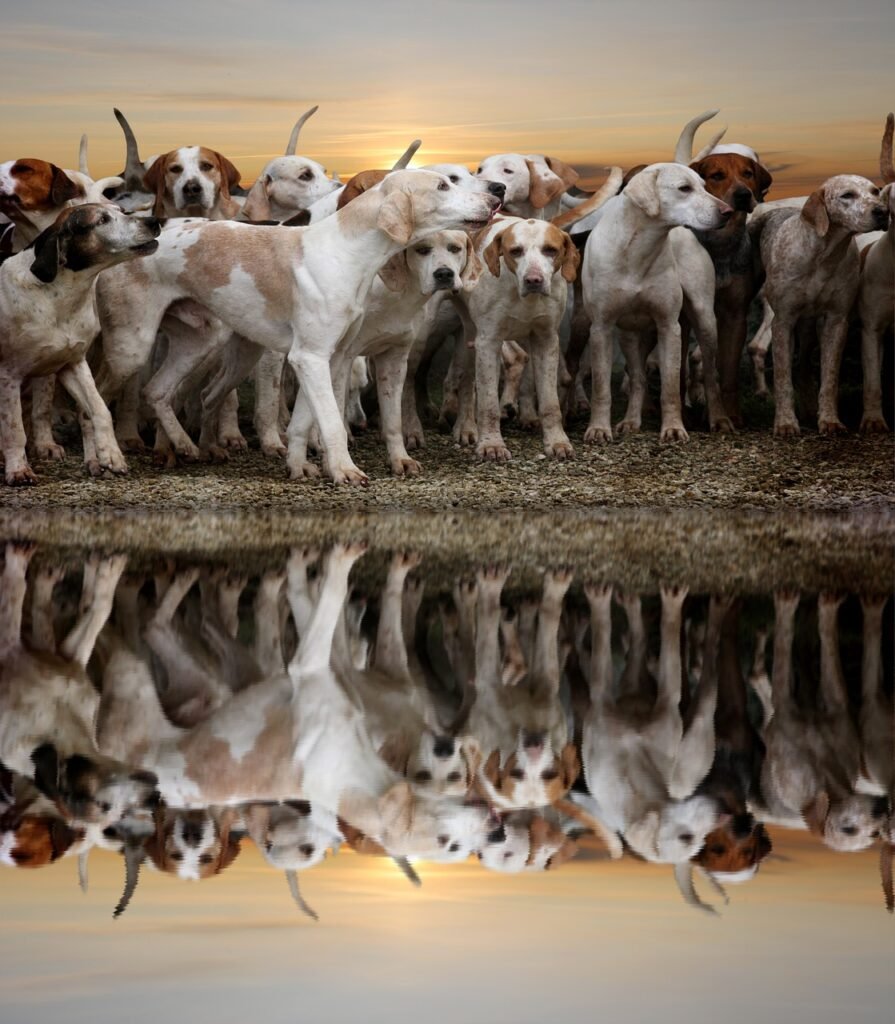Hunting dogs have been used for centuries to assist hunters in tracking and retrieving game. These highly trained dogs are essential for hunting, as they can help to locate, flush out, and retrieve game, this is why hunting dogs are necessary and an important role in the hunting process.
Why Hunting Dogs Are Necessary
Hunting dogs are essential for a successful hunting experience. They are trained to locate game, track it down, and retrieve it once it’s been shot. Without a hunting dog, hunters would have to do all of this themselves, which can be time-consuming and difficult.
Hunting dogs are also important because they can help to ensure a clean, ethical hunt. By tracking and flushing out game, hunting dogs can help hunters to make clean, accurate shots. They can also help to retrieve game quickly, which can reduce the chances of the animal suffering needlessly.
Types of Hunting Dogs
There are many different types of hunting dogs, each of which is bred for a specific purpose. Some of the most popular hunting dog breeds include:
Retrievers: These dogs are bred to retrieve game, often from water. They have a soft mouth, which means they can carry game without damaging it.
Pointers: Pointers are trained to locate game and indicate its location to the hunter. They will “point” with their nose or body towards the game they’ve located.
Hounds: Hounds are often used to track game, especially small game like rabbits and squirrels. They have a keen sense of smell and are able to follow a scent for long distances.
Terriers: Terriers are often used to hunt small game like rats and foxes. They are tenacious and fearless, which makes them excellent at flushing out game.
Training Hunting Dogs
Hunting dogs are highly trained, and the process of training them can take months or even years. Training typically starts when the dog is still a puppy and involves teaching them basic obedience commands like sit, stay, and come. From there, the dog is trained to perform specific hunting tasks like tracking, pointing, or retrieving.
Training hunting dogs requires patience, consistency, and a deep understanding of the dog’s instincts and behavior. Many hunters choose to work with professional dog trainers to ensure their dogs are properly trained and prepared for hunting season.
The Benefits of Hunting Dogs
Hunting dogs offer many benefits beyond their ability to locate and retrieve game. They can provide companionship and a sense of security for hunters who are spending long hours in the field. They can also help to build a strong bond between the hunter and the dog, which can be incredibly rewarding.
Hunting dogs also play an important role in conservation efforts. By helping to manage wildlife populations, hunters and their dogs can help to ensure that game species are healthy and thriving. This can benefit the ecosystem as a whole by maintaining a balance between predator and prey populations.
Hunting dogs are a vital part of the hunting experience. They play a crucial role in locating and retrieving game, and they can help to ensure a clean and ethical hunt. With their keen instincts and highly trained skills, hunting dogs are essential for any hunter who wants to be successful in the field.
Ancestral Nutrition Beef liver offers the specific vitamins and minerals that play a critical role in making healthy red blood cells which is the key to enjoying all-day energy. In this article we dig deep into the benefits of beef liver supplements for energy and also discuss the other benefits that consuming beef organs offer. <click here>
what makes the best hunting dog
It’s difficult to determine which type of dog makes the overall best hunting dog, as each breed is specifically bred for a certain type of hunting and has its own unique set of skills and traits that make it well-suited for that particular type of hunting.
For example, retrievers like Labrador Retrievers and Golden Retrievers are excellent for waterfowl hunting because of their love of water, their excellent swimming abilities, and their soft mouth that allows them to retrieve game without damaging it. On the other hand, pointing breeds like German Shorthaired Pointers and English Pointers are well-suited for upland game hunting because of their ability to locate game and indicate its location to the hunter.
Hounds like Beagles and Bloodhounds are great for small game hunting, such as rabbits and squirrels, due to their exceptional sense of smell and their ability to track game over long distances. Terriers, like Jack Russell Terriers and Rat Terriers, are perfect for hunting rodents and small game that can be found in tight spaces, such as burrows and dens.
Ultimately, the best hunting dog for you will depend on the type of hunting you plan to do and your individual preferences. It’s important to research different breeds and their characteristics before selecting a hunting dog to ensure that you choose a breed that is well-suited for the type of hunting you plan to do and that fits well with your lifestyle and personality.

